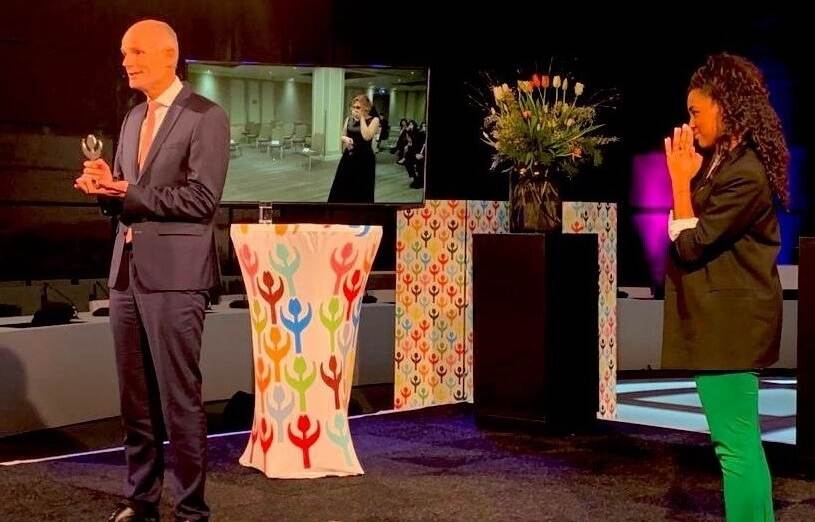Speech by minister of Foreign Affairs Stef Blok at the 46th session of the UN Human Rights Council
Madam President,
Your Excellencies,
ladies and gentlemen,
This year marks two important milestones. One tragic. One hopeful. Ten years have passed since the war in Syria broke out and the atrocities against the Syrian people resumed. And ten years have also passed since the fight against religious intolerance gained ground with this Council’s adoption of Resolution 16/18.
These milestones illustrate the immense power we humans possess:
The power to harm and hurt.
The power to mend and make better.
Over the past few years, I’ve witnessed some of that power. The power of individual people, who took great pains to meet with me and other officials.
Victims of abuses, brave defenders of democracy, courageous journalists. Calmly they shared the most gruesome stories, with one simple goal: to convince the international community to take action and end impunity.

Their accounts left an indelible impression on me. But I was even more struck by their fearlessness.
The courage of Doctor Amani Ballour, who told me about the horrors she’d seen in an underground hospital in Eastern Ghouta. The bombings the city endured. The children with terrible injuries.
And there is the courage of the Burundian journalist Gaca, who I met prior to the World Press Freedom Conference last year.
He told me how he has been harassed, bribed and almost killed. How his radio station has been set on fire. And how he’s not even thinking about giving up.
And there is the courage of Lilit Martirosyan, Armenia's first registered transgender woman, and winner of the Dutch Human Rights Tulip Award.
She too refused to give up the non-violent path to change, even when she received death threats. In her own words: ‘My main goal is to be an encouragement to others and to soothe the pain of my community.’
No matter how great the obstacles on their path, these people don't throw in the towel.
They are simply unstoppable.
Such fearlessness is humbling, and it makes me wonder. What would I do, if I were in such a situation? It’s a hard question to answer.
But what is clear to me, is that there are specific actions that we must take. As governments. As the international community. And as members of this Council.
We can show courage by respecting human rights, reaching out to brave people like Amani, Gaca and Lillit, and responding to human rights violations. By fighting impunity for horrendous crimes. By ensuring individuals have the right to believe or not believe. By protecting the most vulnerable against harassment, and enabling defenders of democracy to do their work.
And we can show political backbone. Right here, in this Council.
Ending impunity is the only way forward.
It’s precisely for this reason that the Council responds to situations of concern. And why this Council launches international investigations into major violations worldwide. It’s why the Netherlands is holding Syria to account. And why the Netherlands has continued to push so hard for an EU human rights sanctions regime.
At the same time, we must commit to upholding universal human rights for all. We must defend the freedom of religion or belief, and implement the 16/18 action plan.
In order to promote religious freedom, the Netherlands recently contributed 2.2 million dollars to the Office of the United Nations High Commissioner for Human Rights, to support the work of the Special Rapporteur.
As members of this Council, we must also commit to protecting the most vulnerable, as well as LGBTI people and women.
Especially during the current crisis.
And we have a responsibility to make sure that journalists, and other defenders of democracy can do their work.
Last December the Netherlands hosted the World Press Freedom Conference, where almost 60 countries committed to investigating and prosecuting all forms of attacks on journalists, whether online or off.

Ladies and gentlemen,
Political backbone is fundamental to what it means to be a member of this Council. With membership comes responsibility.
That’s why candidates must present their human rights programmes and answer questions about their track records. And it’s why this Council’s members must stick to their promises.
‘The hardest thing was choosing who would live and who would die.’
That’s what Dr Ballour told me when I spoke with her last year. It’s an inhuman choice that probably none of us has ever had to make.
It’s up to us to make another choice.
Let’s use our power to enable these brave people to do their work.
Let’s use our power to mend and make better.
Thank you.
